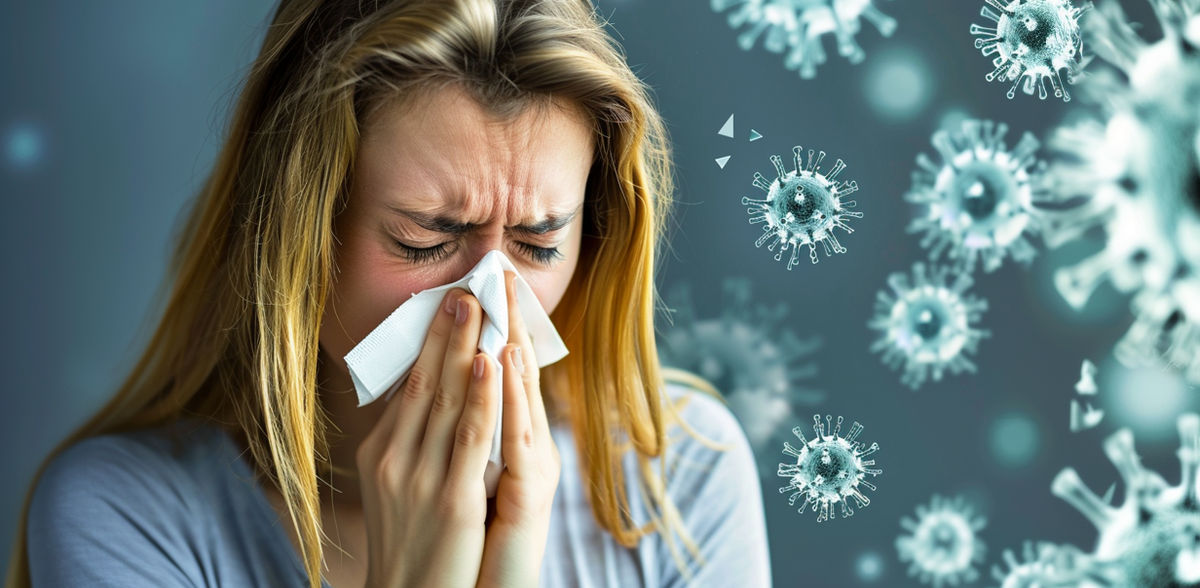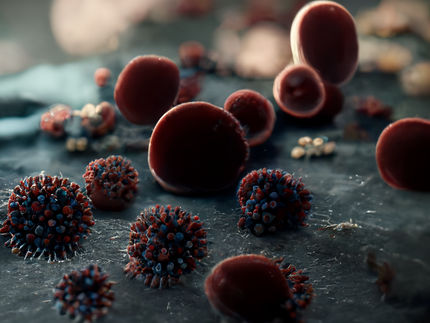Antiviral nasal spray for common colds or more severe respiratory diseases
Start-up G.ST Antivirals reports start of Phase II trial and announces appointment of Ronald Bruce Turner as new Chief Medical Officer
Advertisement
G.ST antivirals, a spin-off from the Medical University of Vienna applying innovative, host cell-based strategies to develop broad-spectrum antivirals against respiratory tract infections, announced the appointment of Ronald Bruce Turner, MD, as new Chief Medical Officer (CMO). An expert in the clinical research of respiratory viruses, Dr. Turner will oversee the Company’s current clinical trial and drive further clinical development. Additionally, the company announced that its lead asset, a broad-spectrum antiviral nasal spray containing 2-Deoxy-D-glucose (2-DG), has entered a Phase II study as the first subject was dosed on April 2nd, 2024.
The randomized, double-blind, placebo-controlled Phase II rhinovirus-challenge study is conducted at the Centre for Human Drug Research (CHDR) in Leiden, the Netherlands, an independent institute that specialises in cutting-edge, early-phase clinical research. This study aims to assess the effectiveness of 2-DG in preventing illness from rhinoviruses, reducing infection rates, and easing symptom severity. It will also evaluate the drug's safety, tolerability, and pharmacokinetics. A total of 128 volunteers will participate, receiving up to four daily intranasal doses of either 2-DG or a placebo. The drug tackles rhinoviruses (RVs), the causative agent of the common cold and more severe respiratory diseases in vulnerable individuals. It also aims to prevent diseases caused by other important agents, such as coronaviruses.
Dr. Guido Gualdoni, Co-Founder and CEO of G.ST Antivirals, said: “I am very happy that we successfully kicked off our new Phase II study, and also delighted to welcome Ronald as our new CMO. He is a world leading expert in clinical research of respiratory viruses, whose outstanding work and remarkable contributions to our field I have been following for a long time. His knowledge will be invaluable when driving our clinical development of 2-DG through Phase II and beyond, and I am very much looking forward to working together.”
“I have supported G.ST Antivirals' work for several years as scientific advisor. 2-DG is a unique and intriguing therapeutic approach to treating viral infections by blocking the virus’ nutrient access,” commented Ronald Bruce Turner, MD, CMO of G.ST Antivirals. “As CMO, I look forward to working with a talented team, driving forward our mission to develop broad-spectrum antivirals against infections of the respiratory tract, providing much needed treatments for viral diseases.”
Dr. Turner is a former Professor of Pediatric Infectious Diseases at the University of Virginia Medical School and is a globally recognized Key Opinion Leader in the field of respiratory viral infections. He has served as the Associate Dean for Clinical Research at the University of Virginia, as Head of the Division of Pediatric Infectious Diseases at the Medical University of
South Carolina and served as a reviewer of multiple scientific journals including JAMA, New England Journal of Medicine and Clinical Infectious Diseases. He has published over 140 articles, reviews and book chapters and consulted numerous companies researching respiratory viral infections. He received his BS in Chemistry from Southern Illinois University and his MD from the Southern Illinois University School of Medicine.
G.ST Antivirals has developed a highly innovative, patented medication against RVs and other respiratory pathogens. Its approach is based on manipulating the metabolism of the host cell. Viruses do not possess a metabolism of their own and are thus dependent on the host cell to multiply. Infections with RVs in particular lead to an anabolic state of the infected cells. This upregulation of host cell metabolic pathways, such as glycolysis, allows the virus to rapidly multiply. Inhibition of glycolysis by the glucose analogue 2-DG reverses the virus-induced metabolic reprogramming of host cells and prevents the utilization of sugar by the virus, thereby significantly limiting its reproduction and consequently starving the virus.
Other news from the department research and development
Most read news
More news from our other portals
Something is happening in the life science industry ...
This is what true pioneering spirit looks like: Plenty of innovative start-ups are bringing fresh ideas, lifeblood and entrepreneurial spirit to change tomorrow's world for the better. Immerse yourself in the world of these young companies and take the opportunity to get in touch with the founders.


















































